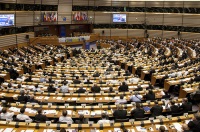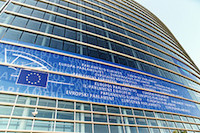I have today, posted a submission to Labour’s YourBritain site, arguing for the Labour Party to support the EDRi’s charter of digital rights. I repeat my categorisation of the charter as supporting citizenship activism, defending privacy from corporate and state surveillance, promoting equality before the law and seeking to ensure a democratically regulated internet. I suggest that this builds on two of the last Labour Government’s greatest democratic reforms, the Freedom of Information (FOI) Act and the Human Rights Act (HRA). I conclude with the proposal that the Labour Party supports the Charter for the European Parliamentary elections and the general election in 2015. …
Digital Liberty, Labour’s Policy?




